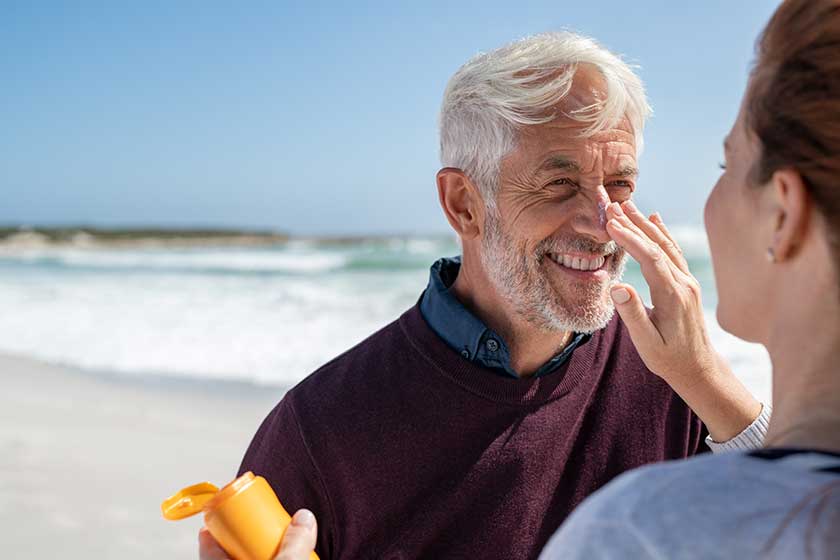Skin cancer is a prevalent and potentially life-threatening condition that affects people of all ages. While it’s true that residents may be more vulnerable due to the natural aging process and prolonged sun exposure over the years, it’s crucial to prioritize skin health for your loved ones living in an assisted living community. The good news is that there are several simple lifestyle habits that can significantly reduce the risk of skin cancer. In this article, we’ll explore these habits and how an assisted living community can play a vital role in promoting and maintaining healthy skin for its residents.
Sunscreen as a Daily Ritual
One of the most effective ways to protect your loved ones from skin cancer is to make sunscreen application a daily ritual. Sunscreen with a broad-spectrum SPF of 30 or higher should be applied generously to all exposed skin areas, including the face, neck, arms, and hands. Encourage residents in your loved one’s assisted living community to incorporate this into their daily routine, especially before outdoor activities.
Seek Shade During Peak Hours
Excessive sun exposure, especially during peak hours when the sun’s UV rays are strongest (typically between 10 a.m. and 4 p.m.), can significantly increase the risk of skin cancer. Encourage your loved ones to seek shade during these hours when they are enjoying outdoor activities in the community garden or taking a leisurely stroll. An assisted living community can provide shaded areas for residents to relax and socialize safely.
Protective Clothing and Accessories
Proper attire can act as a shield against harmful UV rays. Suggest that residents wear long-sleeved shirts, wide-brimmed hats, and sunglasses with UV protection when venturing outdoors. Many assisted living communities offer organized outdoor activities, and ensuring that residents are equipped with appropriate clothing and accessories can go a long way in preventing skin damage.
Regular Skin Checks
Early detection is key in the fight against skin cancer. Encourage your loved ones to perform regular self-examinations of their skin to identify any unusual moles or growths. Additionally, an assisted living community can facilitate regular check-ups with a dermatologist to monitor residents’ skin health and address any concerns promptly. Timely detection and intervention can be a lifesaver.
Stay Hydrated and Nourished
Maintaining healthy skin involves more than just external protection. Adequate hydration and a well-balanced diet play crucial roles in skin health. Ensure that your loved ones are drinking enough water throughout the day and consuming foods rich in antioxidants, vitamins, and minerals. An assisted living community can offer nutritious meals and promote proper hydration among its residents.
The Role of an Assisted Living Community
Assisted living communities play a pivotal role in supporting the skin health of their residents. By integrating these simple lifestyle habits into their daily routines, communities can create an environment that reduces the risk of skin cancer and promotes overall well-being.
Additionally, the assisted living team can educate residents about the importance of sun protection and skin checks, ensuring that they are well-informed and empowered to take care of their skin. Furthermore, the presence of shaded outdoor areas and organized activities can encourage residents to enjoy the outdoors safely.
Incorporating these measures into the daily life of an assisted living community not only protects residents from skin cancer but also enhances their overall quality of life. Residents can enjoy outdoor activities, socialize, and maintain their independence while prioritizing their health and well-being.
Skin cancer is a serious concern for individuals of all ages, including those residing in assisted living communities. By adopting simple lifestyle habits such as daily sunscreen use, seeking shade, wearing protective clothing, conducting regular skin checks, and maintaining proper hydration and nutrition, your loved ones can significantly reduce their risk of skin cancer. Assisted living communities play a vital role in supporting and promoting these habits, creating a safe and healthy environment for their residents. Prioritizing skin health is an essential aspect of providing comprehensive care and enhancing the well-being of those in assisted living communities.







